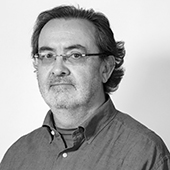The Norwegian writer Jo Nesbo at the presentation of his latest book in Spain /
The Norwegian writer, consecrated as a crime novel magician, publishes his stories for the first time, which pivot between power and jealousy. “Egos are behind some wars, and also the one in Ukraine,” he says, alluding to Putin
Jo Nesbo (Oslo, 62 years old) looks more like a muscular athlete than a writer. Not in vain he is a clad climber, he was a soccer player, singer, songwriter and stockbroker before becoming one of the undisputed kings of contemporary black novels. Creator of the policeman Harry Hole, he has sold more than 50 million copies of his novels in 50 languages. But he has not thoroughly read the father of the novel, Miguel de Cervantes. “‘Don Quixote’ is quite a tome book, I’ve only read it partially,” he confessed with a smile when he introduced the Spanish reader to ‘El hombreceloso’ (Reservoir Books). It is his first collection of stories, a dozen micronovels that pivot between two main “issues”: power and jealousy.
Is jealousy or the desire for power more powerful as a motive for murder?, we asked him. “They are two sides of the same coin and they mix. There are human emotions in the political process”, replies the Norwegian writer. “Personal ambitions are connected to competition and competition is connected to envy,” he maintains.
In his stories, Nesbo explores the evil that nests in the “twisted, Machiavellian and manipulative” minds and “their infinite capacity to harm others and try to deceive the world to get away with it.” A pattern in which Vladimir Putin may fit, capable of unleashing a terrible war that sows destruction, hatred and death.
war pretext
«I studied economic history and they taught us that all historical conflicts start from an economic interest. But when you look at history you can see personal egos that produce wars », he explains. “If we think of Russia, it is obvious that there are individuals who need a pretext, support from the population to justify what they are doing, and of course Putin has it,” says the author of ‘The Snowman’ or ‘Sun of blood’.
“Putin has had more support in his country than any other leader in the world, his enormous popularity allows him to justify the invasion of Ukraine. “Perhaps his ambition has been underestimated. Putin hopes to leave a mark in history and has an agenda to achieve it, as Trump had and Bolsonaro, Orban or Erdogan have it, “adds the writer, referring to the populist leaders of the United States, Brazil, Hungary or Turkey.
The invasion of the Ukraine did not surprise him. Nesbo tells that already in 2014 he imagined a Russian invasion of Norway in the series ‘Occupied’. “When he went on TV, the Russian ambassador was outraged and took it as an insult. He said Norway shouldn’t feel threatened, but a few months later they invaded Crimea,” he notes.
Nesbo knows that democracy is the pillar of our comfortable societies, but warns of its fragility. “It is much weaker than we suppose. We saw it in Yugoslavia and we are seeing it with Ukraine. We like to think that democracy is more solid and in reality it is simply a thin layer on society and civilization that needs to be consolidated day by day. It should not be taken as something given and consolidated »he stressed. “We have lived in a time when the rule of law seemed guaranteed, when conflicts and wars are normal in history,” he points out.
“My mother used to say that short stories are an art while anyone can write a novel,” Nesbo said, clarifying that he did not dare to write them until she died. «She was a librarian and well read, but she didn’t dare let me read my novels», although she finally had her approval, «yes, not at all enthusiastic».
His stories parade characters such as a detective expert in jealousy who investigates a man suspected of murdering his brother, a father who considers the place of revenge in a country that has succumbed to the lowest instincts, or two friends who fall in love with the same girl in Pamplona’s sanfermines.
«In the stories there is no possibility of introducing many dialogues or subtle ways of explaining the characters, as can be done in novels. If you are a good painter like Picasso, you can do wonders with two strokes to represent a character, but it is very difficult, concludes Nesbo, who does not aspire to write “something that can change the world”, but “that can be part of the cultural expressions that try to propel it e in one direction”.
www.hoy.es
Eddie is an Australian news reporter with over 9 years in the industry and has published on Forbes and tech crunch.
